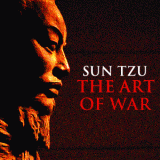Today has been another travel day. Up to Stockholm for a day discussing copyright in relation to university libraries. As usual I found the librarians active and concerned about copyright issues. This is only natural since they are forced to be pragmatic about the way in which they react to copyright.
Most of the problems discussed today dealt with archiving. The most common forms of documents, which need to be archived (and are troubled by copyright), are student essays, licentiate theses and PhD theses.
Copyright creates problems in a couple of ways. First off can universities force student works to be archived and if so can they be put online? The same questions apply to the output of teachers and researchers (not always the same thing).
The whole question is complicated by the shifting practices among libraries, university departments and faculties. Actually the universities rarely have power in these issues since the decision making power is on the faculty level. For more on the dilemmas of university copyright see here.
As I mentioned the librarians were pretty cool. From totally ignoring the question of copyright and taking the â??just do itâ?? approach â?? to the more careful approach which is more concerned with the consequences. The lawyers on the other hand tend to be pessimistic and uncooperative. They want to risk nothing, do nothing, for fear of losing. Sometimes I wonder what they think they would lose in a battle? Since the slow disintegration of copyright is losing the war.
An interesting thing was that the librarians were very concerned about the potential malicious side effects of DRM use by publishers.


